| Speaker | Bio |
|---|---|
|
Image

Lauren Rickards Keynote speaker |
Professor Lauren Rickards is using innovative social research to examine the impacts of climate change on the sectors of society that sustain us, the far-reaching implications of these impacts for our collective wellbeing, and the deep, multi-level adaptation required. As a specialist on climate change adaptability on social change, Lauren was a lead author with the Australasia chapter of the Intergovernmental Panel on Climate Change's Sixth Assessment Report on Impacts, Adaptation and Vulnerability. Primarily a geographer by training, she has a MSc in Environmental Change and Management and a DPhil in Human Geography from the University of Oxford, where she was a Rhodes Scholar, and a BSc (Hons) in Ecology from the University of Melbourne. Prior to joining La Trobe, Lauren was Director of the university-wide Urban Futures Enabling Impact Platform at RMIT University, Research Fellow in the Melbourne Sustainable Society Institute, Associate Partner at RM Consulting Group, and Vice-Principal at Janet Clarke Hall (University of Melbourne). Lauren grew up in Bendigo and when she is not working or watching kids' sport can often be found running in the bush. |
|
Image
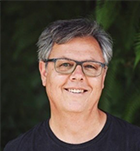
Rob Vertessy Chair, MD-WERP Governing Panel |
Professor Rob Vertessy has a PhD from the Australian National University (1990) and is widely published in the field of hydrology. He led a distinguished career in water research, serving as Chief Executive of the Cooperative Research Centre for Catchment Hydrology (2002 to 2004) and then Chief of CSIRO’s Land and Water Division (2004 to 2007). In late 2006, Rob was seconded to the Department of Prime Minister and Cabinet to design a national water information strategy as part of the Australian Government’s National Plan for Water Security. He then joined the Bureau of Meteorology in 2007 to oversee its implementation as a new Bureau service, forming and then leading the Climate and Water Division (2007 to 2011). Rob served as CEO of the Bureau of Meteorology (2011 to 2016). After retiring from the Australian Public Service in April 2016, Rob took up a part-time role at the University of Melbourne as an Enterprise Professor in Water Resources, where he undertakes research on water security. Rob led the Australian Government’s Independent Assessment into the 2018–19 fish deaths in the lower Darling River. He heads Global Change Advisory, a consulting company focused on environmental intelligence. In this capacity he has recently advised governments in India, Pakistan, Iran, Jordan, Laos and Cambodia on water reform and water information. |
|
Image

Andrew McConville |
Andrew McConville commenced as Chief Executive of the MDBA in June 2022. Before joining the MDBA he was the Chief Executive of the Australian Petroleum Production and Exploration Association, a position he held since 2019. Andrew worked for more than a decade with Syngenta, one of the world’s leading agribusinesses where he held several senior roles, including the Global Head of External Affairs and Communication based in Basel, Switzerland. Prior to this, Andrew ran his own agribusiness public relations consultancy and worked as Head of Corporate Affairs for Business at the National Australia Bank. Andrew holds a first-class honours degree in Agricultural Economics from the University of New England and a Master of Science in Agricultural Economics from the University of Oxford. |
|
Image

Rachel Connell MD-WERP Governing Panel member |
Rachel Connell is the First Assistant Secretary of the Water Reform Division with the Commonwealth Department of Climate Change, Energy, the Environment and Water. She is also the Commonwealth Chair of the Murray–Darling Basin Officials Committee Alternates and the Deputy Chair of the Murray–Darling Basin Officials Committee. Prior to her role with the Commonwealth, Rachel led the regional water portfolio for the NSW Government with responsibility for water resource management strategy, policy, planning and regulation, including implementation of the Murray–Darling Basin Plan, the Safe and Secure Water Program and drought response measures. From January 2015 to May 2018, Rachel was Deputy-Director General, Strategy & Policy in the NSW Department of Primary Industries, where she built a reputation for delivering innovative policy and program solutions and for developing high performing and engaged teams. Earlier in her career, Rachel set up and led the Office of Coal Seam Gas where she had responsibility for developing and implementing a strengthened regulatory framework with a strong focus on risk-based compliance and community consultation. Rachel is a lawyer by training and has worked in private practice and acting for Aboriginal groups in native title and land rights claims. |
|
Image
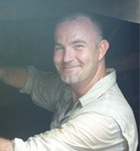
Marcus Finn MD-WERP Governing Panel member |
Marcus Finn is the Branch Head of Northern Basin, Science and First Nations in the Environmental Water and Aquatic Ecosystems Division – which includes the Commonwealth Environmental Water Holder, or CEWH. Marcus leads the teams responsible for the CEWH’s environmental water deliveries in the northern Murray–Darling Basin, First Nations partnerships, the Office of Water Science, and the CEWH’s $90 million investment in flow monitoring, evaluation and research in the Murray–Darling Basin (often referred to as Flow-MER). Across his 20-year career Marcus has worked as an aquatic ecologist, a researcher on water and with First Nations peoples in northern Australia, a fisheries manager, water manager, policy maker and a Ministerial advisor. In many of these roles Marcus has worked at the science-policy interface (and has been lucky enough to sit at both sides of the table) and he feels incredibly privileged to have been able to serve right around Australia, including as far north as Darwin and Thursday Island in the Torres Strait. |
|
Image
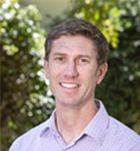
Nick Bond MD-WERP Consortium Director |
Professor Nick Bond has more than 25 years’ experience working on the ecology and hydrology of rivers and wetlands. His primary research focus is on understanding the effects of hydroclimate and catchment-scale processes on water dependent species and ecosystem processes to support river management and restoration. He has been involved in environmental flows research and monitoring in Australia, Asia and South America. He has co-authored over 100 papers in peer reviewed journals. Professor Bond holds a PhD from the University of Melbourne, and is an adjunct professor at the Australian Rivers Institute at Griffith University. He has significant experience in leading large multi-disciplinary research programs, and has established strong links between research and industry, and translating research to guide water management and policy. He currently sits on several scientific advisory panels for state and Commonwealth agencies, including the MDBA’s Advisory Committee on Social, Economic and Environmental Science, and the NSW Murray and Lower Darling Environmental Water Advisory Group. |
|
Image
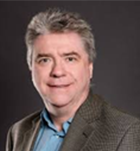
David Post MD-WERP Consortium Director |
Dr David Post has been a research scientist with the Commonwealth Scientific and Industrial Research Organisation (CSIRO) since 1999 and his research interests focus broadly on the impacts of land use and climate change on water resources, as well as on the regionalisation of hydrologic response to ungauged areas. He has a PhD in Resource Management from the Australian National University. From 2012 to 2018, he led the Bioregional Assessment Programme, investigating the impacts of coal seam gas and coal mining on water resources and water-dependent assets. Since 2020 he has led the CSIRO consortium delivering to the Murray–Darling Water and Environment Research Program (MD-WERP). He is also the CSIRO Murray–Darling Basin lead. In 2013, Dr Post was elected President of the Modelling and Simulation Society of Australia and New Zealand (MSSANZ), a position he continues to hold today. |
|
Image
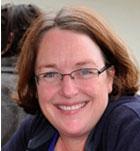
Dianne Flett MD-WERP Engagement Lead |
Dianne is a contractor to CSIRO and the Engagement Coordinator for the WERP Program. In other roles, Dianne is also the Flow-MER Basin-scale coordinator and has worked as a facilitator and communicator for a number of resilience projects for CSIRO. Dianne has aquatic science and business leadership degrees as well as experience in the water and natural resource management sectors, coordinating large projects including the first Sustainable Rivers Audit and the first Murray–Darling Basin Sustainable Yields Project. Dianne works as a consultant providing services in communication, facilitation and program management. |
|
Image

Matthew Coleman |
Dr Matthew Coleman is head of Science Acquisition at the MDBA. He has been part of the MDBA since 2009, strongly involved in Basin Plan development and implementation. Matt has a strong interest in the interface between science and policy, and ensuring science is complemented by other lines of evidence to support water planning and policy. In 2009, he joined the MDBA to assist with Basin Plan development, specifically in relation to data mining and the science-to-policy interface, and has since been strongly involved in Basin Plan implementation. Matthew has a strong interest in using science and knowledge to build water policy and communicating difficult science to a range of audiences. |
Last updated: 11 July 2024